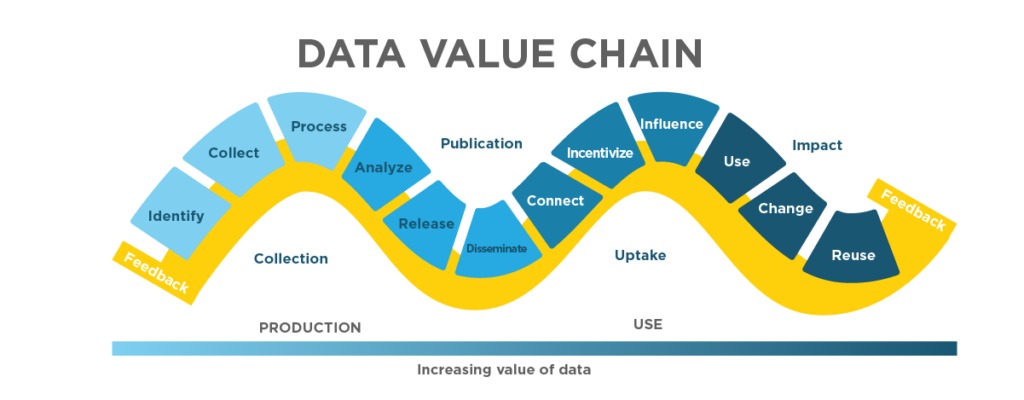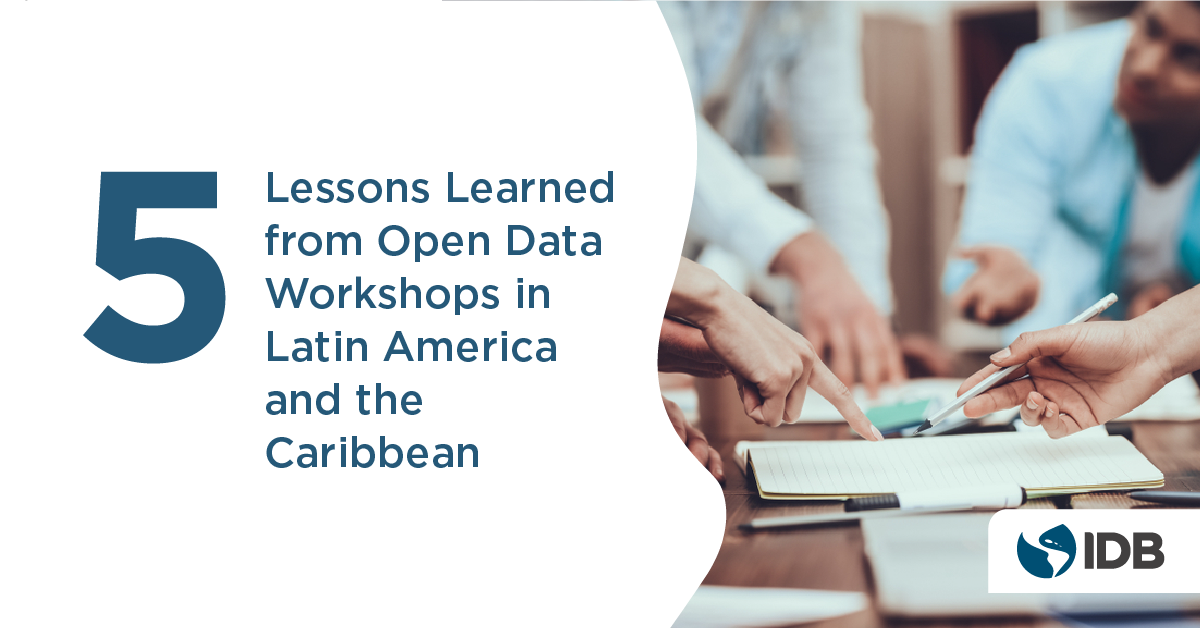Having data is important for decision-making and especially for making good decisions. This may seem obvious, but it was not always so. Nowadays, data is everywhere, in great volume and variety, and serves to guide our actions in countless activities. It is part of our daily lives. And governments are no strangers to this context.
The abundance of data has led States to develop new capacities. Open data can be used in the planning, design, monitoring, and evaluation of public policies. In this way, States can gain efficiency and make more assertive decisions for the proposed objectives.
Managing correctly the abundance of data is a long road ahead. In addition to its benefits for public management, having timely and quality data generates trust among citizens by providing transparency and accountability. For this reason, it doesn’t work if this data is not available or accessible for use. This and many other dimensions are the focus of the open data debate, as we will see below.
State, where is the data?
Imagine a country is facing a resource constraint, say, energy supplies, and wants to structure policies that deal fairly with many factors from transport to the impact on the health of families.
Where does one turn to get data on the current situation in order to assess possible policy impacts? The natural first place to look would be the National Statistical Office (NSO) of the country. NSOs have an obligation to collect and share data as a public good. But it is not always easy.
Data may be held in various ministries or in databases that don’t talk to each other. Access to data may be restricted or there may be gaps in data coverage.
A series of recent workshops have tackled these issues in five countries in Latin America and the Caribbean – Chile, El Salvador, Panama, Paraguay, and Trinidad & Tobago. Organized by Open Data Watch and funded by Transparency Fund of the Inter-American Development Bank, each workshop series has four components covering an overview of the essentials of data coverage and accessibility, a survey of data gaps in various sectors, a checklist of core aspects of open data (like licensing and file formats), and a review of how data is used by various groups inside and outside of government.
Although these initial workshop series have been highly tailored to the specific circumstances and challenges of each country, five common lessons have emerged on how countries, and specifically NSOs, can take a few practical steps to significantly upgrade the accessibility, coverage, use, and impact of data.

How can National Statistical Offices address current challenges in the use, accessibility, and impact of open data?
1. Clearly define “open data”
Open data is crucially about accessibility to data as a public good. Addressed in each first workshop, there are standard technical guidelines (following the guidelines established by the principles of Open Definition) to assure that data can be “open” while scrupulously protecting privacy in terms of microdata. Establishing and following standard norms for file formats and metadata can be quickly set in place to make data sharing much less of an effort.
2. Understand your users
Several of the countries already had tools, like Google Analytics, but did not use these tools regularly to assess what data were most important to which groups of users and how easily the data could be found. Once understood, minimal adjustments to a website can have a huge impact on users being able easily to find data. Additional tactics like user-surveys and feedback groups were promising—yet underused—ways for countries to better understand their users.
3. Develop and share action plans for the National Statistical Offices website that incorporates guidelines for licensing and publishing formats
In each country, as an output of the workshops, an action plan was developed. Licensing was a particular issue. It was found, for example, that some Caribbean countries were using a restrictive policy on reuse of data, but that this could be easily updated to conform to international standard “open” licenses by using a customizable licensing template. This was a major step towards opening data and one that was often overlooked as a catalyst for use and impact of data.
4. Coordinate between data producers to address interoperability and data gaps
It turned out that the workshops offered a forum for data producers to talk to each other. In Panama and Paraguay, other ministries were invited to join the full NSO workshop series. In Trinidad & Tobago, other ministries joined the discussions after the NSO-specific technical discussions. For Chile and Paraguay, workshops offered an opportunity to focus on specific sector data gaps such as gender. But in every case, discussions between data producers on data gaps, interoperability issues, and user needs were seen as exceptionally useful and mutually beneficial.
Countries are encouraged to coordinate meetings with other statistics producers to talk about open data issues and agree upon dissemination standards, so government data openness doesn’t vary between producers.
Good practices include starting with a working group to talk about open data or dissemination and standards more generally, during regularly scheduled meetings, and to decide, at minimum on a common data license, datasets that should be published, priority disaggregations, and common classifications (particularly geographic standards since they apply across all types of data).
5. Build awareness of data use, coverage, and accessibility into the day-to-day tasks of National Statistical Offices
Political leadership and commitment to open data at senior levels in the NSO and ministries is important. These elements not only do it smooth cooperation between data producers. They provide a structure for open data issues to be integrated into regular work, rather than a separate add-on process which many staff do not have the capacity to take on.
Open data to improve lives
As the International Open Data Charter points out, open data allows governments, citizens, civil society organizations and the private sector to make decisions based on evidence. Effective and timely access to data can have an impact on the generation of innovative ideas and new knowledge, whose externalities result in social and economic benefits, improving the quality of life of people around the world.
The open data workshop series is a part of a bigger picture—increase technical capacity level to open and use data. These actions strengthen countries’ statistical capacities and provide more and better data for accountability. As countries follow up on discussions in the workshops, they can see how it fits into the Data Value Chain and how it impacts their scores in the Open Data Inventory (ODIN) – the international assessment of the openness, coverage and accessibility of official statistics in over 190 countries.


SALUDOS CORDIALES, ESTOY HACIENDO MI TESIS DOCTORAL SOBRE GOBIERNO ABIERTO, PARTIENDO DE LOS CONTROLES EXTERNOS E INTERNOS, ELLOS COMO HERRAMIENTA, EL TEMA DE DATOS ABIERTO ESTA INCLUIDO EN LA PALETA TEÓRICA QUE ANEXO A MI INVESTIGACIÓN, ACUDO A FUENTES DESDE INTERNET Y VOY SUMANDO, HOY 8 DE SEPTIEMBRE ME CONSIGO CON SU BLOG, , TREMENDO, TITULO EN LAS 5 IDEAS DE DATOS ABIERTOS, VA APEGADO A MI BUSQUEDA DE INFORMACIÓN, ALGUNOS DE SUS TRABAJOS A NIVEL DE DOCTORADO ESTÁN CONCENTRADOS EN UN SITIO QUE PUEDA LEER? ESTO CON LA FINALIDAD DE SUSTENTAR CON TRABAJOS DE 5TO NIVEL,